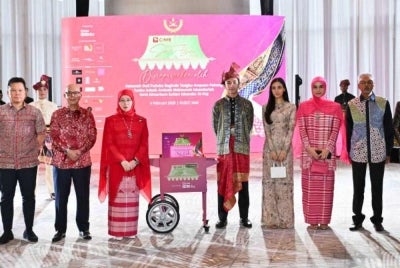Hoteliers sees uptick in sales from Singaporean, Indonesian travellers since April 1

SHAH ALAM - Malaysian hotels record higher sales from foreign tourists since the reopening of the country’s national border on April 1, according to the Malaysian Hotel Association (MAH).
However, prior to April 1, MAH chief executive director Yap Lip Seng said the average room occupancy has been hovering between 30 to 40 per cent, fluctuating between peak weekends and holidays and normal weekdays.
He said popular domestic destinations fare better since the borders have reopened however currently the majority of sales have been recorded from Singaporeans and Indonesian tourists.
As for manpower, Yap mentioned the industry is struggling with labour shortages however expected more people to return to the industry as the country transition into the endemic phase.
“With the assurance that the industry is on track to recovery and businesses will resume as usual, people will be encouraged to return to the industry and take up hospitality as a career again.
“In the meantime, hotels are coping with what is available on hand, with more focus on productivity and efficiency while managing expectations of guests based on their respective capacity,” he told Sinar Daily.
MAH had also expected room occupancy to reach over 60 per cent for the third quarter of the year following the reopening of the national borders.
While most of the hotels have reopened since interstate travels resumed in October last year, Yap said the industry has yet to recover financially.
The reopening of international borders and transition to endemicity is essential for the industry to regain traction again with local and international travellers, said Yap.
When asked if the hotels have been looking forward to the Ramadan month, Yap explained that hotels are adjusting their services such as serving Ramadan buffets as an added value to their customers.
“The fasting month is historically a slow month for rooms even pre-pandemic, but at the same time, it is an opportunity for hotels to take advantage of demands to break fast as added revenue to the hotel.
“Hotels are trying their best to work within the situation and add value to customers, especially from the corporate sector with better service, better environment and food quality. We are all aware that the general public is looking forward to celebrating the holy month of Ramadan,” he said.
However, Yap said that food wastage, a common problem during the month of Ramadan, will likely be reduced this year as the industry has made several improvements.
“Buffet management has improved over the years with a lot more focus on controlling food waste, partly by promoting better awareness to guests, as well as enhancing food preparation processes.
“At the same time, many hotels have signed up with food rescue initiatives such as Food Aid Foundation, to rescue surplus food that can be re-processed for the less fortunate,” he said.
Download Sinar Daily application.Click Here!















